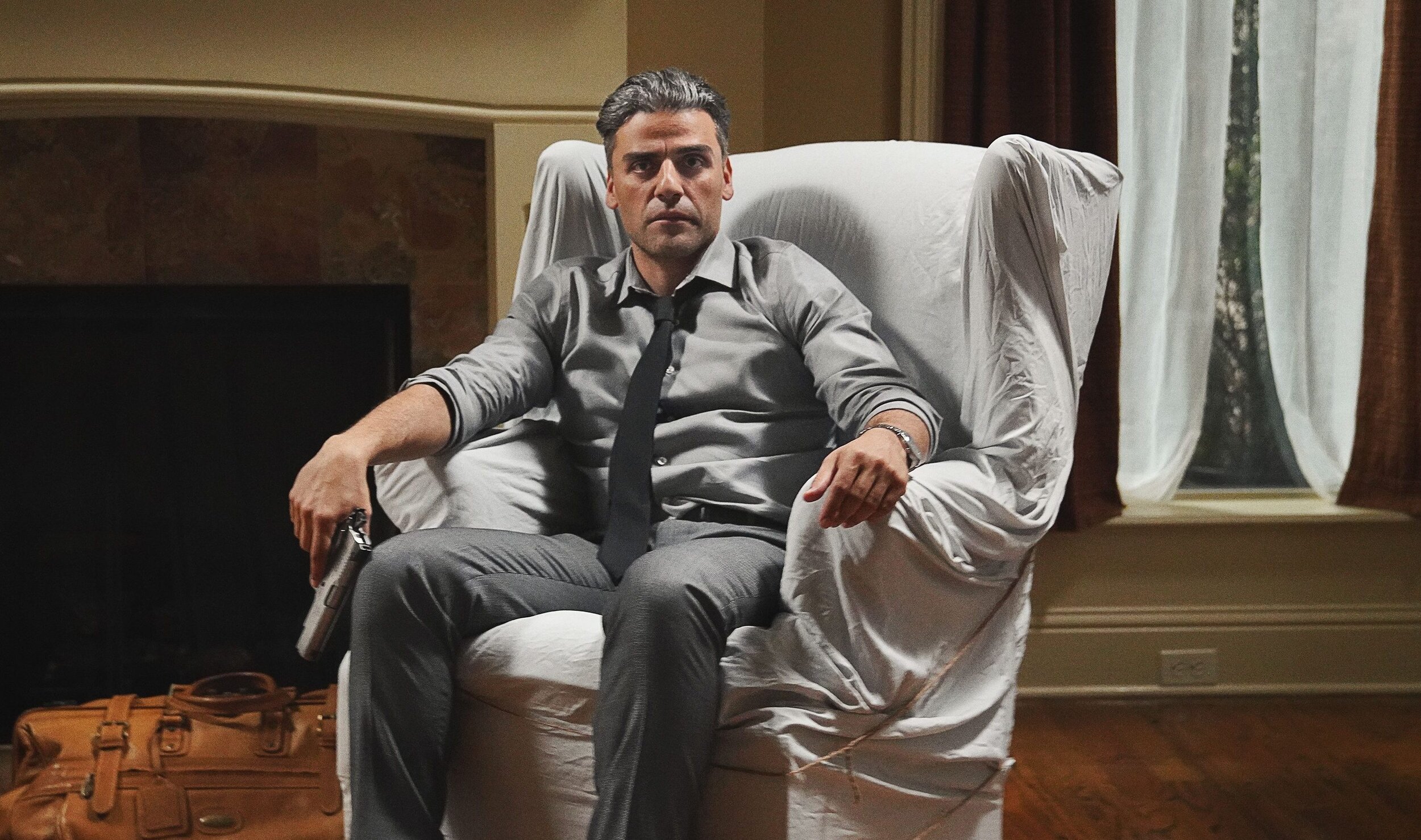Patrick McElroy on Paul Schrader's transcendent THE CARD COUNTER
As a filmmaker ages, one often expects for them to decline in the twilight era of their career. Seldom do they make something that would be considered one of their best.
Paul Schrader is one of the few exceptions in that age has brought a sense of wisdom and a meditative quality that he’s always desired. With his newest film The Card Counter out in theaters right now, he achieves a sort of transcendental style that he’s always admired in filmmakers such as Carl Theodor Dreyer, Yasujiro Ozu, Andrei Tarkovsky, and most notably Robert Bresson. This is a style of film that emphasizes less of a thrill, or shock, and more of a release. The film centers around William Tell (Oscar Isaac) a former soldier who’s just been released from military prison for past crimes that he won’t speak of. During his time in prison, he’s picked up the ability to count cards, so now he’s back at casinos and poker events playing card games. When out of prison he meets Cirk (Tye Sheridan), who had a late father who was connected to William in his past life, and he wants to take revenge on Major John Gordo (Willem Dafoe). But William convinces him not to as he’s already seen the effects of that in his lifetime. Cirk then accompanies William for the rest of the film, as he goes to different poker events, and more of his past comes to light. The one bit of hope William has in his life is in La Linda (Tiffany Haddish), an acquaintance from his past life who manages gambling investors.
Schrader once said that Robert Bresson’s 1959 masterpiece Pickpocket had the biggest impact on him. He’s reworked it into American Gigolo, and Light Sleeper. Here he reworks it again but does it better than he did in the former films, because with age he brings more of a calmness that wasn’t there initially. Since making those films he’s now seen his children grow up in a different world then he did, and it’s reflected in the film as the character of William looks at a younger generation represented by Cirk, which he did similarly in his previous film First Reformed.
Most movies about gambling don’t take the question of human morality into account, but this one shows it as a meaningless existence of people who are just passing by. Much like his colleague, and the film’s producer Martin Scorsese, Schrader presents us with characters who are rooted in sin but offers a sense of redemption for them. This is a film that you walk away from with a sense of relief, similarly to William you’ve felt his confinement, but then there’s a sense of peace similar to that of Bresson, and that’s what Schrader has always tried to achieve.
Patrick McElroy is a movie writer and movie lover based in Los Angeles. Check out his other writing at: https://www.facebook.com/patrick.mcelroy.3726 or his IG: @mcelroy.patrick


